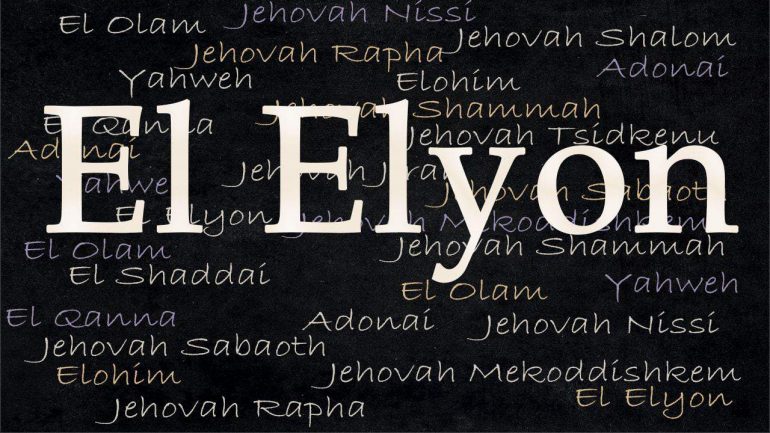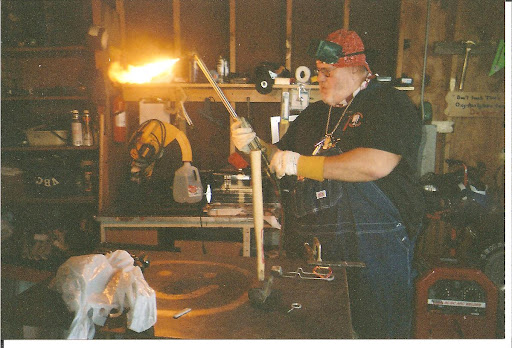El Elyon is one of the many Hebrew names of God. It translates as “God Most High”.
When I started thinking about the significance of this name, I figured it was not much different than the other names of God such as Elohim or El Shaddai, which in general refer to God’s omnipotence.
After digging deeper, I gained a different perspective.
To me, it seems that the name El Elyon is about position.
It’s about God’s position in relation to everything else in the universe. Everything that God created and everything that man created.
El Elyon is above everything. Over Satan, over angels, over nature, over princes and principalities, over man.
Even so, the desire to “be as gods” — to be as El Elyon — has been around for a long time.
This desire is the pride that led the angel, Lucifer, to rebel against God in heaven. The same pride that led Adam and Eve to eat from the forbidden tree of knowledge in the Garden of Eden.
The same pride that led Noah’s descendants to attempt building a tower whose top will reach into heaven.
El Elyon is used 28 times in the Bible. One of those times is in the book of Daniel, Chapter 4.
Here we find King Nebuchadnezzar II reigning over the Neo-Babylonian Empire (modern-day Iraq) in the time of the Judean exile.
Daniel, a Jew taken captive by Nebuchadnezzar, serves the king loyally while also remaining true to the God of Israel. Daniel is gifted by God with the ability to interpret the meaning of Nebuchadnezzar’s many dreams.
In one of these dreams, an angel descends from heaven to announce that a tree will be cut down, but its stump and roots will remain. There is a man in the dream who will be changed from a man to a beast for seven periods of time, so that the living may know that El Elyon is ruler over the realm of mankind. And bestows it on whom He wishes.
Daniel interprets the dream and tells Nebuchadnezzar that he is the tree that will be cut down.
“… This is the decree of El Elyon, which has come upon my lord the king: that you be driven away from mankind and your dwelling place be with the beasts of the field, and you be given grass to eat like cattle and be drenched with the dew of heaven; and seven periods of time will pass over you, until you recognize that El Elyon is ruler over the realm of mankind and bestows it on whomever He wishes. And in that it was commanded to leave the stump with the roots of the tree, your kingdom will be assured to you after you recognize that it is Heaven that rules.”
Furthermore, Daniel personally advises Nebuchadnezzar to renounce his sins.
What was going on with Nebuchadnezzar that God would intervene in such a dramatic way?
As we will see in how things play out with Nebuchadnezzar, “Many are the plans in a man’s heart, but it is the Lord’s purpose that prevails” (Proverbs 19:21).
I think this context will make clear the significance of El Elyon, the God Most High.
Nebuchadnezzar was one of the greatest warrior kings of this time, and during his reign (c. 605 – c. 562 BC), Babylon became the most powerful city-state in the known world.
He expanded his empire tremendously, gaining power and wealth by either conquering or requiring tribute from other regions.
In 605 BC Nebuchadnezzar subdues Judah, and the first group of Jewish captives, including Daniel, are deported to Babylon. These Jewish deportees were largely the upper class and skilled tradespeople.
A few years later in 597 BC, he attacks Jerusalem, again taking thousands of Jewish captives, including the prophet Ezekiel.
And according to Daniel 1:2 the sacred articles of the temple of God are carried off to Babylon and placed in the temple of Nebuchadnezzar’s god in Babylon.
(We know from other biblical accounts that it has never been a good idea to mess with God’s temple, or the Ark of the Covenant, or other sacred vessels.)
Finally, in 586 BC Nebuchadnezzar attacks Jerusalem a third time. After a prolonged siege and unspeakable horrors, the walls of Jerusalem fall. The city is razed, Solomon’s Temple is torched and the remaining sacred articles carried off to Babylon.
Chronicles 36:18-19 records that Nebuchadnezzar carried to Babylon all the articles from the temple of God, both large and small, and the treasures of the Lord’s temple. “They set fire to God’s temple and broke down the wall of Jerusalem; they burned all the places and destroyed everything of value there.”
These are just some of Nebuchadnezzar’s military exploits.
Back home, there are other exploits in the form of many grand building projects.
One of Nebuchadnezzar’s most spectacular projects was the restoration and expansion of the Etemenanki, a ziggurat which was thought to be built over the ruins of the Tower of Babel.
The Etemenanki is said to have been approximately 300 ft. high, requiring at least 17 million bricks to be made and fired.
The Etemenanki was a tower-temple dedicated to the god Marduk. Marduk was recognized as the supreme god of Mesopotamia, and especially the city of Babylon. The people believed Marduk was the creator of the universe. They also believed Marduk lived, not in heaven, but in the Etemenanki, near them.
It’s interesting to note that centuries earlier, God had intervened in a dramatic way when Noah’s descendants attempted to build a tower whose top will reach into heaven — the one known as the Tower of Babel. To put it mildly, this project did not please God (cf. Genesis 11).
And Nebuchadnezzar’s tower-temple project does not bode well either.
Also, remember, we know from Daniel 1:2 that Nebuchadnezzar carried off some of the articles from the temple of God to the temple of his god in Babylon and put them in the treasure house of his god.
For Nebuchadnezzar, it seems no problem for him to desecrate El Elyon’s sacred articles by putting them in his god Marduk’s temple.
All of this has taken place prior to Nebuchadnezzar’s dream. So, it is clear why God must intervene to make himself known as El Elyon, the God Most High.
I think if we look closely, we can see ourselves in Nebuchadnezzar. Running here and there with our high-minded plans to fulfill our “purpose” in life, and then slipping into living our lives as if we were a god unto ourselves.
How easy it is to forget El Elyon’s position over us, and over everything.
Nebuchadnezzar is unruffled and unmoved by God’s warning to him in the dream. Twelve months roll by without incident.
Then, in Daniel 4:30 we see Nebuchadnezzar walking on the roof of his palace, musing to himself, “Is not this the great Babylon I have built as the royal residence, by my mighty power and for the glory of my majesty?”
Wow.
To me, it seems by what he says, that Nebuchadnezzar has literally become blinded by pride.
Of course, we know what happens next. Immediately, the warning in the dream is fulfilled exactly as predicted.
Nebuchadnezzar goes insane in the wilderness. “He eats grass like oxen; his body is wet with the dew of heaven until his hair has grown like eagles’ feathers and his nails like birds’ claws.”
At the end of seven periods of time, Nebuchadnezzar praises El Elyon. Then God restores his sanity, and his kingdom is restored even greater than before.
Daniel 4 ends with this verse: “Now I, Nebuchadnezzar, praise and exalt and glorify the King of heaven, because everything he does is right and all his ways are just. And those who walk in pride he is able to humble.”
I wonder: Did Nebuchadnezzar whole-heartedly recognize God as the one true God, El Elyon, the God Most High? Or did he continue to worship his god, Marduk? This does not seem clear.
But what is clear to me, is that Nebuchadnezzar’s pride represents the pride of mankind.
And we see that pride is reckless. Even worse, being blind, pride cannot even recognize itself.
As human beings, we forget that we are but dust. That we came from dust and will return to dust. And because of pride, we begin to overrule El Elyon.
Yes, God created us in His image, and in that way, we are to be Godly — a reflection of Him to others.
Only He is El Elyon, the God Most High.






